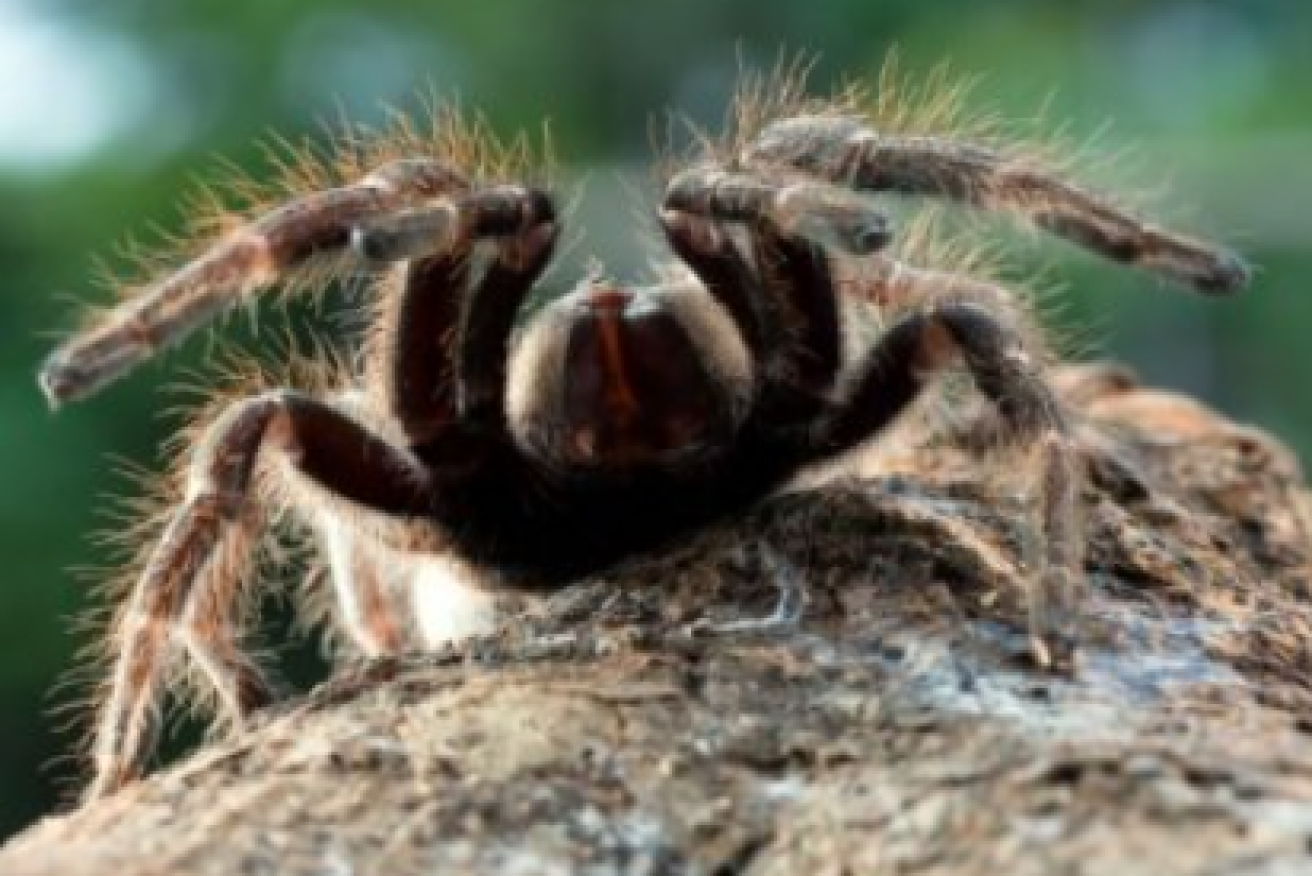Qld researchers think this rare tarantula could help treat a crippling disease
A molecule found in the venom of a rare Peruvian tarantula could end up being a treatment for motor neurone disease.

A green velvet tarantula which could help treat MND (Pic: Adobe)
The spider had proved useful for medical research before. In 2016, researchers at University of Queensland were investigating whether the spider’s venom was being looked at as a potential pain treatment.
The University of Queensland Institute for Molecular Bioscience said it had received funding from the US Department of Defense.
The institute’s Dr Fernanda Cardoso said the molecule from the Peruvian green velvet tarantula could be used to prevent nerve degeneration that led to progressive muscle weakness.
She said the molecule stopped the continual firing of motor neurons that occurred in MND patients and caused a toxic build-up of neurotransmitters that pass signals from one neuron to another.
The research has so far found that the molecule prevented nerve degeneration in a Zebrafish model of MND and now further testing could be done as well as progress towards clinical trials.
“We are hopeful that with a little help from a tarantula, we can slow down the impact of this devastating disease.”
About 2000 Australians suffer from the disease for which there is no cure.
The institute also received funding for a second MND project which has been using PET scanning to get a better understanding of the disease.
Neurologist and honorary professor Michael O’Sullivan said it was difficult to diagnose MND because it varied greatly among patients.
“Our project is a world-first pilot study in MND patients that uses a new form of dye that binds to a molecule involved in mopping up neurotransmitters in the brain and spinal cord,” he said.
“We are looking at testing 35 people with amyotrophic lateral sclerosis, the most common adult-onset form of MND, which has an average survival of just three years.”









